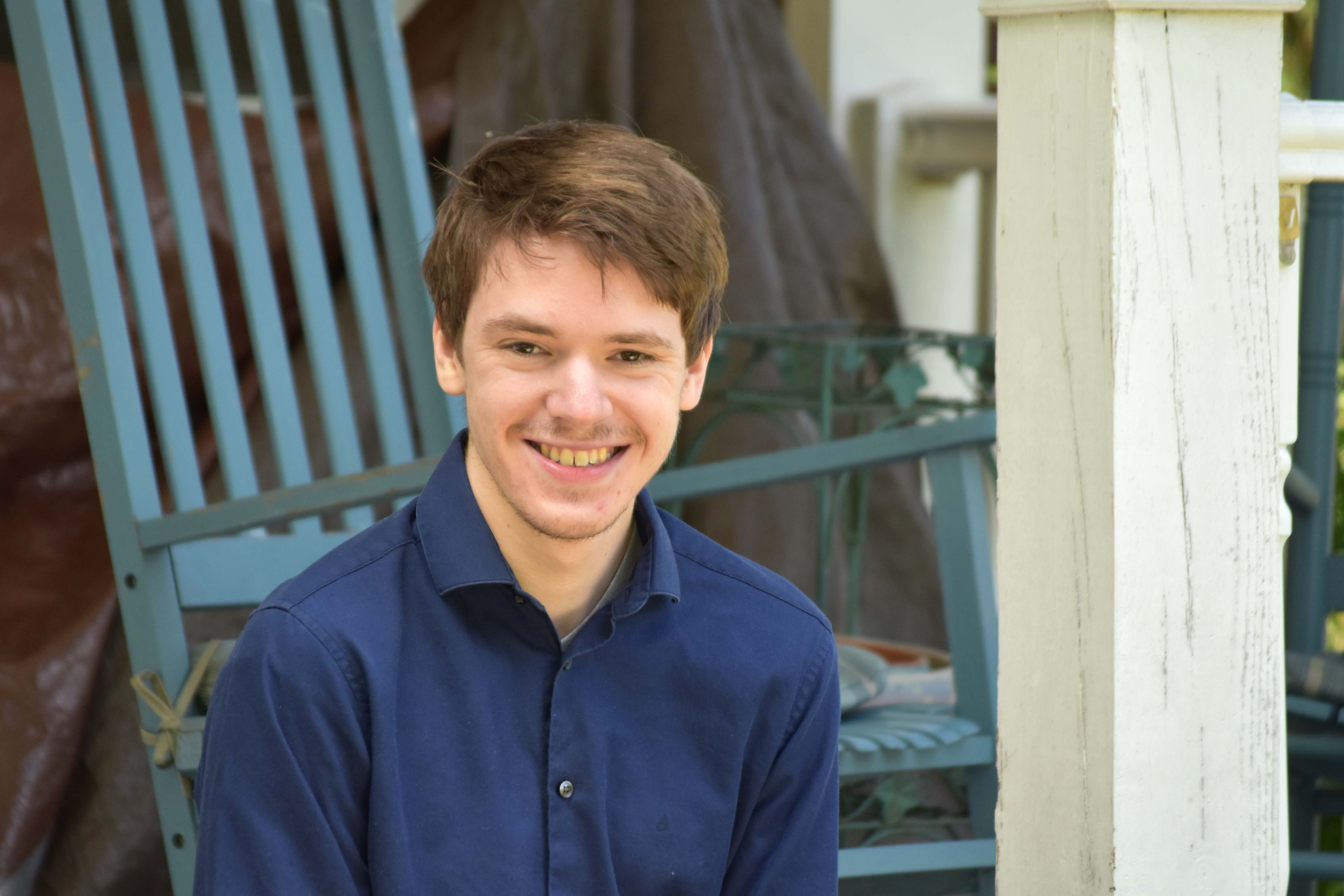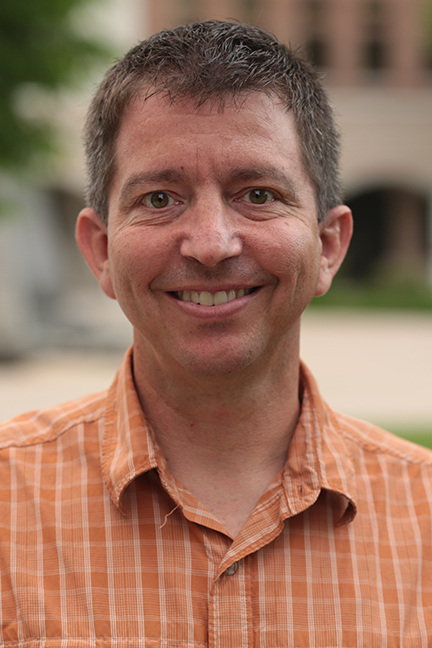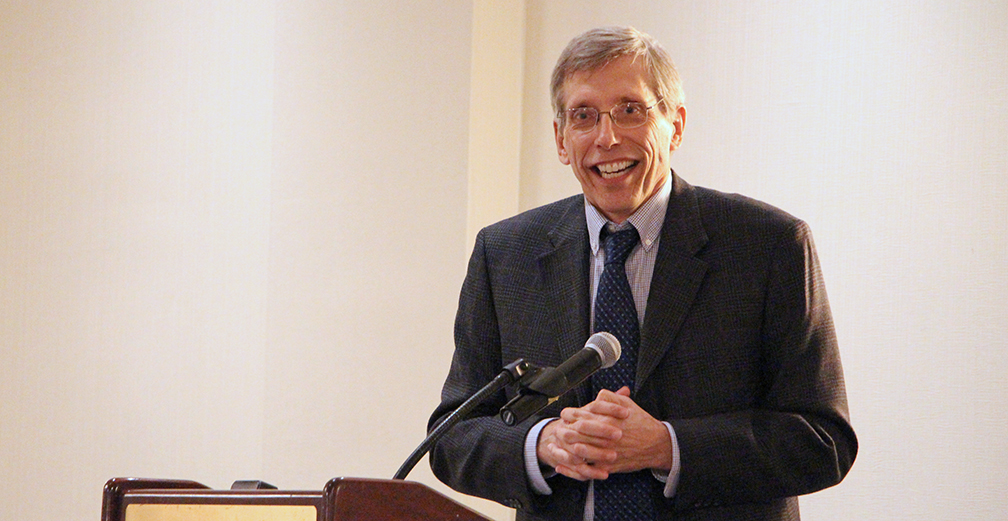Blog
See Dr. Jamie Martin’s remarks to the Board of Governors – Aug. 13, 2020
The Aug. 13 Board of Governors meeting took place via Zoom and conference call. Below are APSCUF President Dr. Jamie Martin’s comments as prepared:
Chairwoman Shapira, Chancellor Greenstein, governors, university presidents and guests,
As I begin my remarks this morning, I would like to start by making an observation — and it is an obvious one. I am not giving these remarks at the Dixon University Center. All of us are in our offices or homes scattered throughout the Commonwealth. This meeting is remote because we are all aware that assembling in person in the board room in the DUC would not allow for appropriate physical distancing. As we know, the CDC recommends at least 6 feet of physical distance between oneself and others, and this should be done in concert with other preventive actions, such as wearing masks, to reduce the spread of COVID-19. While all of us would prefer to be in the same room and to interact with one another face-to-face, the Board of Governors is not meeting in person because it would not be safe to do so.
On the other hand, something very different is beginning to occur on some of the State System campuses. On Monday, face-to-face classes began at Cheyney University. Concerns have been raised by some of my colleagues there regarding an inability for students and faculty to appropriately physically distance in some of the classrooms. When these concerns were raised, a member of the administration stated that there are no specific requirements that there must be 6 feet of distance between desks, rather the guidelines suggest this should occur “when feasible.” This type of statement represents a lack of concern — and perhaps even disdain — for the students and faculty at one of our nation’s oldest HBCUs.
This week, students are arriving back to campus at Bloomsburg and Shippensburg universities, and they will be on campus for up to a week before classes begin. Students will begin arriving early next week at Indiana University of Pennsylvania and mid-week at Kutztown University. Many believe, and science seems to confirm, that having students return to campuses for in-person classes — or even hyflex classes — is unsafe, and the proliferation of COVID-19 cases at other universities is alarming. According to a recent New York Times report, more than 6,600 coronavirus cases have been linked to U.S.colleges and universities, and the fall semester has not yet begun at most of them.
In Georgia, the Cherokee County School District began K-12 classes on Aug. 3. On Aug. 4, parents were notified that a student tested positive for COVID-19, and that resulted in 20 students and a teacher being sent into quarantine for two weeks. The class is now being taught remotely. By the start of the second week of classes, over 900 students and staff members have been ordered to quarantine, and nearly 60 positive cases have been reported. One important difference between the K-12 schools and colleges and universities is that K-12 students return at the end of every school day to their homes and are under the supervision of parents or guardians. At our universities, this is not the case; our students do not have supervision of parents or guardians.
In a recent op-ed in The Chronicle of Higher Education, Gregg Gonsalves, an assistant professor of epidemiology at Yale University, said this:
“Dorms are like cruise ships on land or prisons without bars: people living in proximity, in frequent contact over extended periods of time. For many infectious pathogens, such settings are a boon for disease transmission…Colleges are perfect incubators for viral spread and propagation.”
I feel compelled to continue to articulate the real apprehensions of the members of my union. I want the position and concerns of APSCUF to be very well-documented. My members are convinced, as am I, that there will be cases of COVID-19 on some of our campuses; that students, staff and faculty will become ill; and there will be spread to the communities in which our universities are located.
I will close by saying that I hope and pray that I am wrong. I hope that our universities will be able to catch lightning in a bottle and that there will be no cases of COVID-19 on any of our campuses. If that occurs, I will stand before all of you, in person or remotely, and will admit my error and will encourage you to remind me of it. My real fear, however, is that the students, staff and faculty at Cheyney University — because they are the first university to open — will be the canaries in the coal mine, and I hope that they will all emerge healthy and safe.
Thank you for your time, and I wish you all continued good health.
APSCUF intern makes valuable connections during summer of meaningful, appreciable work

Bloomsburg University student Kyle Bower was APSCUF’s summer government-relations and communications intern. Click here to learn more about APSCUF’s internship. APSCUF file photo
I applied to APSCUF’s internship program needing to fulfill a graduation requirement. I was fortunate to have a professor who is a member of the Bloomsburg APSCUF chapter. One day she sent me an email with a three-character message: “FYI” and a hyperlink leading to the APSCUF internship application. Before this, I had never heard of APSCUF, even though I had felt its effect during the fall 2016 strike. And although the university asked me to detail my expectations for the internship, the truth is I had little sense of what to anticipate. On a logical level, I had an idea of what the experience would entail, but I did not imagine that I would feel a connection with the organization, the team members and my work experience because it didn’t even really cross my mind. I’m sure it is no surprise to anyone familiar with APSCUF and its internship that the job is a wonderful opportunity in an enjoyable working environment, but I must stress that I am truly, truly happy that I stumbled into this lovable group that nurtured my development in a way that blows my other working experiences clean out of the water.
How do I properly commemorate APSCUF and go beyond a simple obligatory round of thank-you’s, without getting too gushy? First, it is important that everyone know — or be reminded — that there is a mutual respect and appreciation between the members of the APSCUF team that extends to the interns. I felt as if I was treated like an adult more so then I have in my entire life, and that is no exaggeration. There was a remarkable balance between being offered help without ever feeling condescended to, and a level of trust in my abilities that I really appreciated. In addition to the work I did and the support I had, I learned a lot just from watching my supervisors, our president and others on calls, videos, etc. Needless to say, they do an amazing job, and I could see how well they carried themselves, how organized they were and how well-respected APSCUF is.
I had a sense of responsibility with APSCUF that I have not experienced before. Being tasked with interviewing members, giving meaningful input on policy issues, and writing stories and posts for the website and social media all made me feel like I was doing meaningful, appreciable work —and that is something I crave. Something I know we all deserve. I speak with full sincerity when I say that I’ve looked back on the stories that I’ve written for the website and felt a deeply satisfying sense of gratification. I’d even be so bold as to say I feel sentimental about my time with APSCUF, despite the fact that my internship was entirely remote and only lasted 10 weeks. While being remote meant that I had less opportunity to spend time getting to know my co-workers and to meet legislators, my supervisors were great about keeping me connected. I was still able to meet and make connections with the team members, and I attended virtual meetings and public hearings. In fact, one of the first things APSCUF interns do is meet all of the department heads individually. This is such a simple gesture, yet so poignantly emblematic of what students get with an APSCUF internship.
There is too much to talk about to give a full picture of my experience at APSCUF and my appreciation for what it’s done for me and for young minds across the State System. I wish more students knew about APSCUF and understood its impact, but I will be sure to spread the word as far as I can. I also wish I could have spent time with the team in person, but even through virtual meetings and phone calls I feel as though I’ve made some valuable connections and made some wonderful friends.
Thank you to Kathryn and Sean for hiring me and guiding me, and thank you to Jamie Martin and the rest of the APSCUF team for being so supportive and welcoming. It was a short few months, but I will forever look back on them fondly.
—Kyle Bower,
APSCUF intern
Longtime APSCUF member Matt Girton brings communication expertise to executive council
Matt Girton has applied his background in organizational communication and conflict management to various roles in APSCUF — from strike council to negotiations committee, and now to the executive council as an officer-at-large. Girton said he understands the problems facing Pennsylvania’s State System of Higher Education, and he is ready to tackle them.

Matt Girton
“You cannot cut your way out of a structural deficit,” he said. “It will not affect every school equally. That is the challenge going forward.”
Having helped to organize the fall 2016 APSCUF faculty strike and to negotiate a one-year contract, Girton said he uses a conflict-management strategy based on the five conflict-management styles, emphasizing the collaborative style of conflict resolution.
“If you can understand some superordinate interest, the end result is something that both parties can buy into,” he said. “If what it comes down to is competition, you get what you’ve gotten in previous years. The process will break down if one or both parties believe that their interests aren’t being taken into consideration.”
Girton began his career as an adjunct professor for Shippensburg University before transferring to Lock Haven University and beginning a tenure track. He became a member of the chapter’s executive council, before serving as chapter president from 2017 to 2019. Girton worked toward greater involvement in APSCUF from the beginning.
“It is hard to get into committees,” he said, “but I pestered Steve Hicks (then chapter president), and he was good about getting me involved.”
Hicks, also a past State APSCUF president, regarded Girton as having qualities that illustrated his potential.
“Matt was a fairly new, young faculty member,” Hicks said. “But he was enthusiastic. He was clearly unafraid of getting involved. On top of that, he was not shy about speaking and had things to say.
“Of course, as a chapter leader, one is always looking for new talent — the next generation, if you will. And he looked like that. That he would someday be chapter president and then on state exec council, well, I wouldn’t have been surprised.”
In entering his new position, Girton said he feels his experience and the union’s previous success have prepared him for his current role.
“This is one of the most challenging times that I’ve ever been in, and I’ve been in the strike.” he said. “There was a concern then in terms of how unified we would be. And we answered that definitively. Hopefully that still resonates with the officer of the chancellor.”
Girton said he finds inspiration from his parents and his wife, Joanette.
“My heroes are the people that I am closest to,” Girton said. “I have parents that are truly remarkable. I point to those two individuals, in addition to my wife. She is self-made, somebody who came up and educated herself through her own initiative.”
More about Girton
Girton said he likes to play tennis and run to stay active. He also loves to travel with his wife, who works in the travel industry. Girton is also a tenor saxophonist who has played in the Rose Bowl and appeared in the movie “Naked Gun” as a marching-band member.
“At the end of the movie, you can see the top of my head for a brief moment,” Girton said of his cameo in the film. Girton resides in Lock Haven with his wife.
—Kyle Bower,
APSCUF intern
Bloomsburg APSCUF chapter president retiring after 17 years

In September, APSCUF honored Bloomsburg University Chapter President Dr. Steve Kokoska with its Distinguished Service Award. APSCUF file photo
Steve Kokoska is retiring as Bloomsburg’s longest-serving APSCUF chapter president, holding the position since 2003. A professor of mathematics, Kokoska came to Bloomsburg from Colgate University in New York, which did not have union representation at the time.
“Within the first few years at Bloomsburg, I realized the value of a union,” he said. “In addition to protecting salaries and benefits, there was always someone representing your best interests, and that’s why I became involved. And I wanted to see my colleagues be well represented and have a voice in campus decisions.”
Kokoska began his work with the Bloomsburg chapter on the grievance committee, working closely with staff to understand needed improvements in working conditions, filing grievances on behalf of Bloomsburg faculty, and helping to protect salaries, benefits and academic freedom for professors. In this position, Kokoska said he was able to “ask management difficult, analytical questions, ensure management followed the CBA, and advocate for faculty rights and benefits.”
As chapter president, Kokoska also served on the local planning and budget committee, the budget subcommittee, space and facilities, the president’s advisory committee, and as an adviser to the BU Foundation board and the BU council of trustees. He stressed his belief in shared governance and faculty involvement in decisions that affect the entire academic community.
Bloomsburg’s new chapter president is Eric Hawrelak, who worked with Kokoska as vice president and has also served on several university and APSCUF committees. Hawrelak’s first semester as president will be the first one since the lockdown in March.
“It is a little intimidating to follow someone that was CP for as long as Steve was CP,” Hawrelak said. “I am also excited. I learned from Steve to be patient and listen. I also learned that you have to have a thick skin to be CP. Finally, I learned to never make a decision in a bubble.”
Kokoska recognizes the challenges ahead. He also said he worries about a loss of community in the universities, and he wants students and faculty to “support each other at university activities outside of the classroom.”
But he remains very confident in his chapter.
“I think they will do a wonderful job,” he said. “Recovering from the virus is a challenge. I think the nature of higher education is going to radically change. But I have a lot of confidence in the APSCUF team to respond and adapt.”
Kokoska said he enjoys academia, the lifestyle, the students and the chance to learn something new every day.
“I love to teach,” he said. “I love being in the classroom. And I love talking about mathematics and the challenge of making difficult concepts accessible and understandable.”
Kokoska said he is eager to continue working on academic projects. The third edition of Kokoska’s “Introductory Statistics” was released this year, and he plans to begin work on a second edition of “Calculus for AP.” Kokoska said he also plans to play more pickleball in his retirement. He would like for those in higher education to remember the importance of community, he said.
“Never make a decision in isolation,” he said. “It’s important to work together, communicate, reach a reasonable compromise and grow and change together.”
—Kyle Bower,
APSCUF intern
Sign the petition: Faculty teach and students learn better when we’re safe
In this month’s survey about reopening, members told APSCUF their needs for the fall semester. Now it’s time to tell the State System leaders directly: Faculty teach and students learn better when we’re safe. In the first week, we collected more than 1,600 signatures in support of this message. If you have not yet added your voice, please take 30 seconds to stand with APSCUF by reading and signing the petition. Thank you to the more than 1,700 (updated July 23, 2020) APSCUF members and supporters who have signed so far.